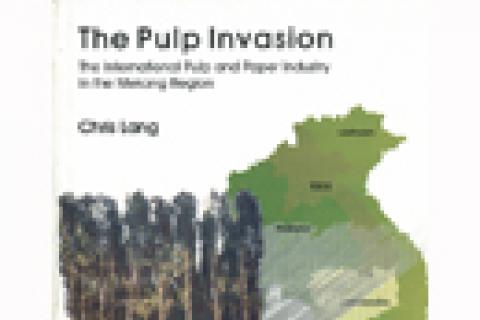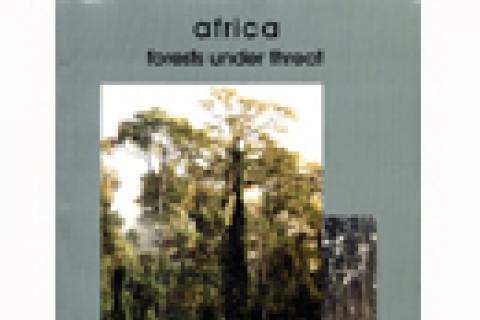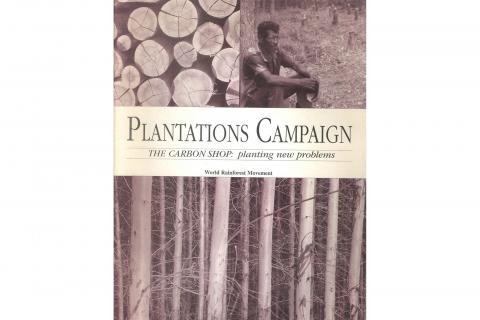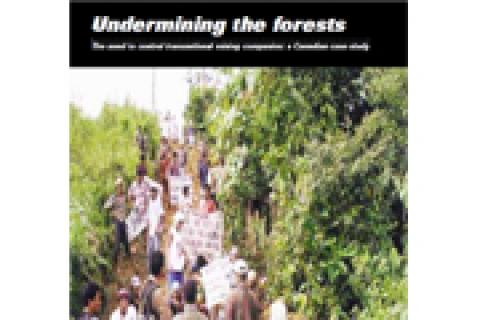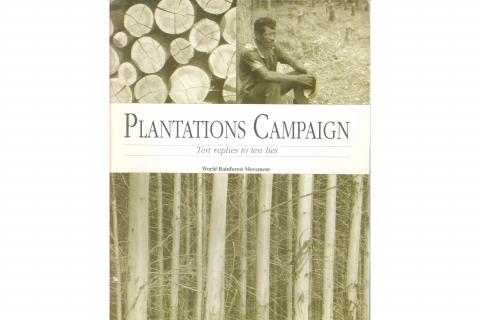This book gathers a selection of articles published in the monthly electronic bulletin of the World Rainforest Movement (WRM), addressing the issue of the impacts of large dams on forests and local communities, as well as the struggles developed at the local and global levels against them.
Publications
Forests are one of the most valuable eco-systems in the world, containing over 60 per cent of the world's biodiversity. This biodiversity has multiple social and economic values, apart from its intrinsic value, varying from the important ecological functions of forests in terms of soil and watershed protection to the economic value of the numerous products which can be extracted from the forest. For many indigenous and other forest-dependent peoples, forests are their livelihood.
This report was produced in 2000-2001 for the World Rainforest Movement, looking at the current state of the pulp and paper industry in the Mekong Region: Thailand, Laos, Cambodia and Vietnam. The research covers the extent of plantations and their social and environmental impacts in the region, the role of the various institutions in supporting the expansion of industrial plantations, and the patterns of local resistance to ecological damage and loss of livelihood.
Generally speaking, public perception regarding tropical forests rarely includes mangrove forests, in spite of the fact that this type of ecosystem is found exclusively in tropical and subtropical regions of the planet. Clearly, their characteristics are entirely different from what popular imagination considers as "tropical forests" (exuberant vegetation, gigantic trees, accompanied by the most varied range of species of fauna).
The solution to climate change --which is already happening and being suffered by millions of people around the world-- is in theory quite simple: to substantially reduce emissions of greenhouse gases, particularly carbon dioxide. The majority of those emissions result from the use of fossil fuels (coal, oil and natural gas), whose carbon was safely stored under the earth's surface. The extraction of vast and increasing volumes of fossil fuels is at the core of the current climatic crisis.
For many people around the world, the relationship between the World Trade Organization (WTO) and the future of forests appears to be difficult to perceive. The following briefing aims at assisting people to understand those links and therefore to facilitate their involvement in the struggle to radically modify the current corporate-led approach to international trade.
The World Trade Organization and Forests
Ten years after the Rio de Janeiro Earth Summit, forests continue disappearing at an alarming rate. According to the FAO, some 161 million hectares of forest were lost during the 1990's, which means that the average rate of deforestation remained basically unchanged compared to the one that occured during the 1980's.
The World Bank in the Forest
This book gathers a selection of articles published in the monthly electronic bulletin of the World Rainforest Movement (WRM), addressing the issue of the processes leading to the destruction of African forests and the struggles developed there to protect and use these forests adequately.
Given the widely ignored impacts of oil palm plantations and their widespread promotion throughout the tropics, the World Rainforest Movement decided to bring together research and local struggles in a book aimed as a tool for action. Given that the problem is present in Africa, Asia and Latin America, we chose three representative cases for each continent: Cameroon, Ecuador and Indonesia.
by Forest Peoples Programme, Philippine Indigenous Peoples Links and the World Rainforest Movement


